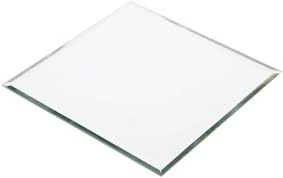

The Allure of Mirror Float Glass A Reflection on Beauty and Functionality
Mirror float glass, a material that captures both the eye and the imagination, has a profound impact on architecture, interior design, and everyday objects. Its unique properties combine aesthetic appeal with practical functionality, making it an extraordinary choice for various applications. This article explores the characteristics, manufacturing process, benefits, and diverse uses of mirror float glass, highlighting why it is a favored material in modern design.
Understanding Mirror Float Glass
At its core, mirror float glass is a type of glass that begins as molten silica, soda ash, and limestone. This mixture is floated on top of molten tin to create a flat, even surface. The process, known as float glass manufacturing, results in a smooth, reflective surface ideal for mirroring purposes. Once the glass is formed, a thin layer of metallic coating—usually silver or aluminum—is applied to the back. This coating transforms the transparent glass into a mirror, reflecting light and creating a sense of depth and space.
Aesthetic Appeal
One of the most compelling aspects of mirror float glass is its aesthetic versatility. It can be treated to achieve various finishes, including frosted, tinted, or even tempered variations. These treatments allow designers to craft unique environments tailored to specific moods or styles. Whether it's a sleek, modern bathroom, a cozy living room, or an expansive commercial space, mirror float glass can enhance the ambiance significantly. The reflective quality also contributes to the illusion of larger spaces, making small areas feel more open and inviting.
Practical Advantages
In addition to its visual advantages, mirror float glass offers numerous practical benefits. Its robustness makes it suitable for both residential and commercial applications. The glass is resistant to corrosion and can withstand various environmental conditions, ensuring longevity and maintaining its appearance over time. Furthermore, modern coatings make mirror float glass highly effective in blocking UV rays, thereby protecting interiors from fading and degradation.

Safety is another critical consideration. Many manufacturers offer safety-backed options, which combine mirror float glass with a layer of film or backing that prevents shattering upon impact. This feature is particularly important in high-traffic areas or homes with children, where safety is a priority.
Diverse Applications
The uses for mirror float glass are virtually limitless. In residential settings, it is commonly employed in bathrooms, wardrobes, and decorative mirrors. Its reflective nature can be utilized to create striking feature walls or to accentuate staircase designs, enhancing both style and safety.
In commercial spaces, mirror float glass is a staple in retail environments, where it can be used to create eye-catching displays or maximize the perception of space. It is also found in offices, where glass partitions encourage collaboration while maintaining privacy. The hospitality industry utilizes mirror float glass in hotels and restaurants to create an inviting atmosphere, helping to reflect natural light and make spaces appear more expansive.
The Future of Mirror Float Glass
As we look towards the future, innovations in technology and design are poised to further enhance the capabilities of mirror float glass. Smart mirrors, integrated with touch technology and lighting controls, are becoming increasingly popular, combining function with cutting-edge technology. Additionally, sustainable practices in manufacturing and sourcing materials are gaining traction, promoting eco-friendly options in the market.
Conclusion
In summary, mirror float glass stands at the intersection of form and function. Its unique manufacturing process, combined with its aesthetic and functional benefits, makes it a preferred choice across various industries. Whether in a modern home, a bustling retail space, or a sophisticated office, mirror float glass not only provides a reflective surface but also enhances the overall design, making it a timeless material that will continue to inspire and innovate for years to come. Embracing this elegant and versatile medium opens up endless possibilities for creative expression and practical application in our surroundings.